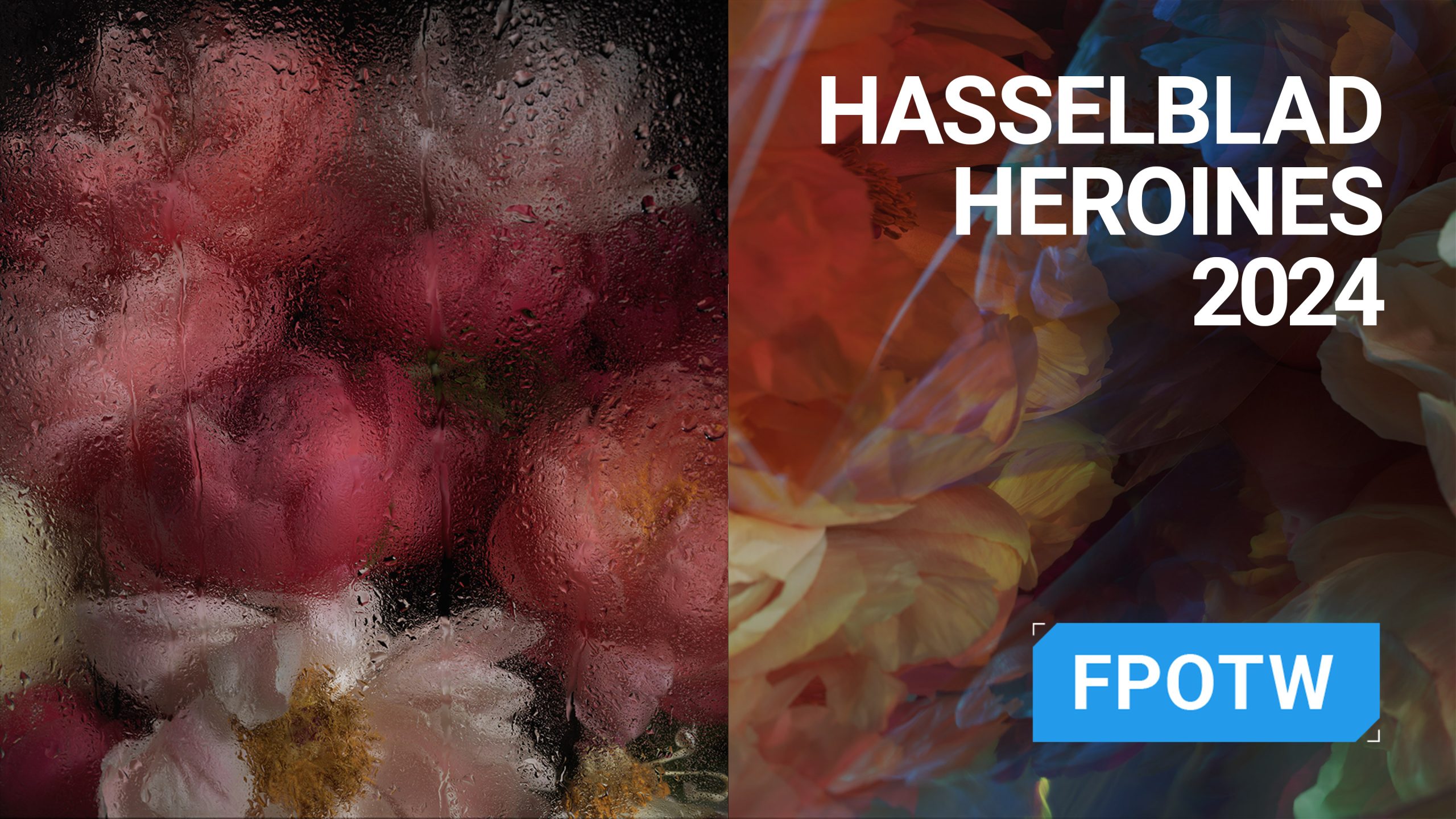

Hasselblad Heroines is highlighting accomplished female photographers, sharing their experiences, industry challenges, and artistic inspirations through images and interviews. The 2024 campaign features Slovakian beauty photographer Andrea Zvadova.
Andrea celebrates unusual beauty and diversity in her work, which ranges from exquisite macro details to in-camera effects. This transforms the standard idea of a beauty image into a window of curiosity and abstraction. DIYP got to chat with Andrea to find out more about her work and inspiration.
DIYP: How did you find your style and niche? What made you start to explore close-ups and macro images?
Like with anybody else in the creative industry, my work and preferences evolve. I’d say sometimes it is due to external influences, but there is always the space within ourselves that intuitively or purposefully chooses the creative path. I am very interested in detail and am very observant. This definitely translates directly into my work.
I have worked on beauty close-ups, capturing details that transport you into a different macro world. Photographing with medium format enables me to achieve incredibly detailed close-ups, and when enlarged, you can see details that are imperceptible to the naked eye.
DIYP: Can you tell us a little about your photographic journey and how you got started?
I have loved photography since my teenage years. Initially, I began by taking photos with an old Practica camera using black and white film. Over time, my focus shifted towards fashion, beauty, and portrait photography, influenced by my background in the fashion industry.
DIYP: How would you describe your photography? What common themes run through your work?
It revolves around details and colours; it stretches from minimalism in my pigment series to a hyper-colourful world. I love working with practical effects to capture an image, implementing obstructions, warped elements, and optical illusions that transform my objects into more abstract forms.
DIYP: Can you give us some examples of the warped effects or obstructions that you use to create your images?
I have worked on many floral still lifes like Parallels, or portraits and beauty photography where the shapes change and warp into experimental space. The effects are all shot in camera and not a result of digital manipulation or post-processing.
DIYP: Please tell us about what equipment you typically use?
As I am mainly studio-based, I always use studio lights and medium-format cameras. Due to my specific focus on detail, most of the time, I use only a 120mm macro lens. I love using this lens for photographing portraits as well.
DIYP: What challenges have you faced in your photographic career?
Self-doubt, for sure. Those moments when you question whether you are creating good and valid work.
DIYP: How does the female perspective differ from the male gaze in portraiture and beauty? Do you feel as though you are connecting with your subjects differently? What advantages do you think it has?
I’d say there is a difference, or at least there has been a major difference in the past. Currently, you can observe photography that looks through a lens that is less gender-based, mainly among young photographers. I can only speak for myself, as personality plays a big role in this. I am very respectful and seek mutual trust while on set.
The connection is always dependent on mutual chemistry. Being a female photographer has the advantage of garnering more trust towards me, I can see that. However, that generally is a very transferable experience that applies to any situation outside of photography.
DIYP: Do you have any new projects or future plans that you can tell us about that you’re excited about?
I have been working on my albinism series for a while, and this is what I’d like to continue with. There are many colourful beauty and floral ideas that would be a continuation of my work.
DIYP: What does being featured as part of the Hasselblad Heroines mean to you?
It is an honour to be connected to such a globally renowned brand. Sometimes, it feels very surreal, especially when you consider its history and the major photographers who have used Hasselblad.
DIYP: Each week, we ask a question from another photographer. This one is from Charles Brooks:
What’s the toughest technical challenge you’ve ever had to overcome in your photography?
The light is very important, to achieve the perfect image you have in your mind can be sometimes very tricky. But with the experience, you can visualise it and plan it well ahead. The tricky part is when you don’t have enough time to prelight the scene, or the space is trickier to work in.
But I guess the biggest challenge is to work on the postproduction. I don’t like spending much time behind the computer editing images. That is why it is important to create the best possible image in the camera. That is what I try to achieve and implement in my creative photography, where I use practical tricks to achieve my images.
You can see more of Andrea’s work on her website or follow her on Instagram.






